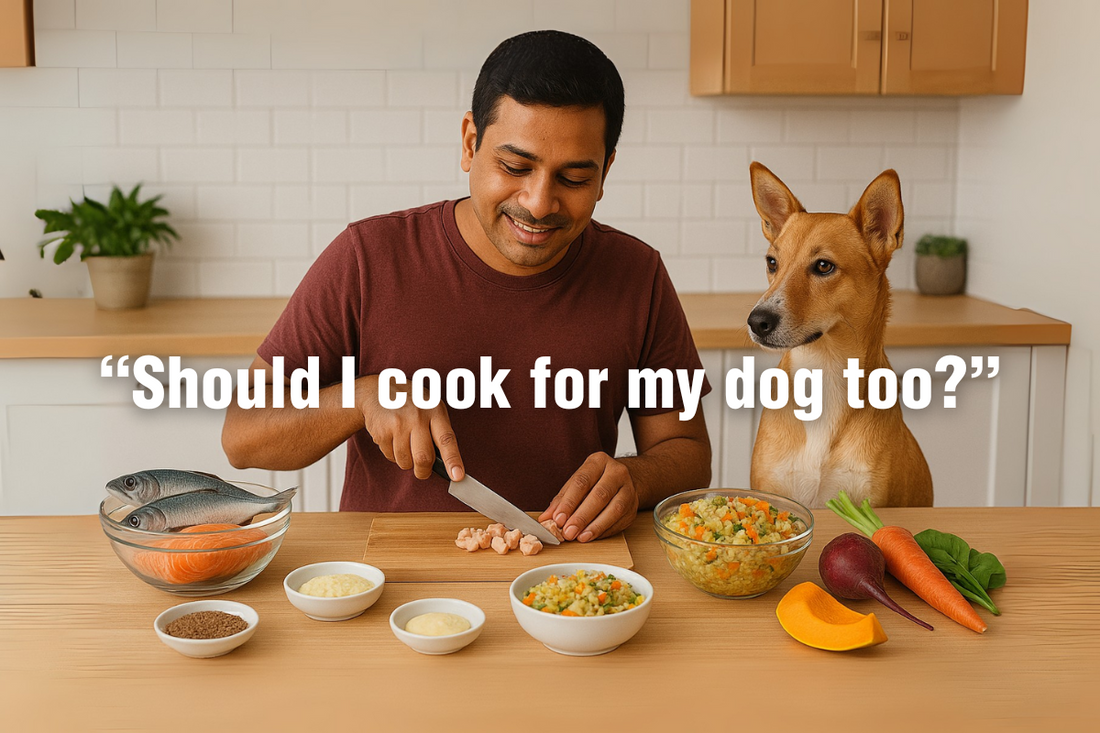
Homemade Dog Food: Pros, Cons & Must-Know Tips
Share
As pet parents become more mindful of what goes into their own food, many are beginning to ask: “Should I cook for my dog too?” The idea of homemade dog food is appealing—it feels personal, wholesome, and transparent. But is it always better? Let’s unpack the benefits, challenges, and important tips every dog owner should know before making the switch.
Why Some Pet Parents Choose Homemade Food
The biggest benefit of homemade food is control. You know exactly what your dog is eating—no hidden preservatives, no low-quality fillers, no questionable meat sources. You can also tailor meals to suit your dog’s specific needs, like allergies, weight issues, or sensitivities.
Another bonus? Freshness. Whole foods like lean meats, vegetables, and healthy fats are often more nutritious when prepared fresh and minimally processed. Plus, dogs usually find homemade meals more palatable, which can help picky eaters or older dogs regain interest in food.
But It’s Not Always Simple…

Cooking for your dog isn’t as easy as tossing some rice and chicken into a bowl. Dogs have different nutritional needs than humans. A homemade diet that’s not properly balanced can lead to deficiencies in essential nutrients like calcium, phosphorus, zinc, or vitamin D.
Unlike commercial pet food, which is usually formulated to meet various standards, homemade meals require planning. Without the right balance of protein, fats, carbohydrates, fiber, and micronutrients, you may unintentionally cause long-term health issues.
That’s why, at DHouseOfDogs, we created our line of nutrient-rich meal toppers—designed to be the perfect companion to any meal, especially homemade ones. These toppers are made with 100% natural ingredients and are packed with essential supplements, vitamins, and minerals. So even if your dog’s main food isn’t perfectly balanced, you’ve got backup nutrition built right in—without the stress of tracking every nutrient yourself.
Must-Know Tips If You’re Considering It
- Consult a Vet or Canine Nutritionist: Before switching, speak with a professional to assess your dog’s needs and get a complete, vet-approved recipe.
- Avoid Toxic Foods: Grapes, onions, chocolate, garlic, and certain nuts are toxic to dogs—even in small amounts.
- Balance Matters: Include a source of lean protein, healthy fat, digestible carbs, fiber, and a vitamin/mineral supplement if recommended.
- Keep It Consistent: Sudden diet changes can cause digestive upset. Transition slowly over several days.
- Prepare in Batches: To save time, you can cook and portion meals in bulk, then refrigerate or freeze them.
Is Homemade Right for Your Dog?
Homemade dog food isn’t for everyone—and that’s okay. It takes time, planning, and dedication to do it right. But for some dogs, especially those with allergies or special dietary needs, it can make a world of difference.
If you’re unsure whether to go homemade full-time, consider doing it partially—like adding home-cooked food as a topper to your dog’s regular meals. Or better yet, add a DHouseOfDogs meal topper to bring in targeted nutrition, flavor, and variety. That way, you still offer freshness and health benefits without compromising balance or convenience.
